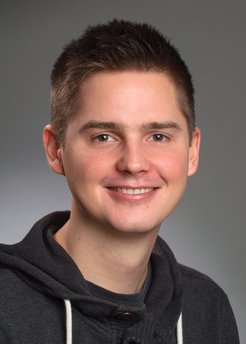Wojciech Kopec receives Human Frontier Science Program grant 2021

Probably everyone knows the children’s game ‘telephone’, where a message is whispered from player to player and usually gets messed up on the way. Also cells, the building blocks of all living organisms, communicate by receiving and sending messages – so-called signals – from and to their neighboring cells. However, unlike the game ‘telephone’, living cells need to communicate without errors, because ‘misunderstandings’ can lead to serious disabilities, diseases, or even death.
There are multiple ways how cells communicate with each other. One of them is through ion channels. Ion channels are proteins located in the cell membranes that, when activated, transport ions from the outside to the inside of the cells. Thereby, a cellular response can be triggered, which sends a signal to the next cell. Basically, ion channels work similarly to a switch that can be turned on and off through a signal, and starts and stops the cellular communication. Researchers have multiple techniques at hand to manipulate the activation of ion channels, allowing them to study cell communication in great detail. These methods, however, have fundamental limitations. “They can be too invasive, which may affect the results of the studies, or they require genetic modification,” Kopec explains.
The project leader and his colleagues now want to investigate the physiological effects of a recently developed, non-invasive technique – so-called sonogenetics – that uses ultrasound to trigger ion channel activation. “So far, we know that sonogenetics work, but we still do not understand the underlying physiological mechanisms on how the ultrasound waves cause ion channels to react,” he says. By combining experimental testing conducted by Costa and Hartel with computer simulations carried out by Kopec, the research team aims to identify these mechanisms. This will allow scientists to improve the methods of sonogenetics, which opens new paths for studying the electrophysiological properties and functions of ion channels and cell communication.
About Wojciech Kopec
Kopec studied chemistry in Kraków (Poland) and completed his PhD in Biophysics in 2015 at the MEMPHYS – Center for Biomembrane Physics, University of Southern Denmark. Afterward, he worked as a postdoctoral fellow in the Research Group of Computational Biomolecular Dynamics headed by Bert de Groot at the MPI for Biophysical Chemistry. In July 2020, Kopec was promoted to project leader in the same group.
About the Human Frontier Science Program
The Human Frontier Science Program (HFSP) was founded 1989 and this year is financially supported by the G7 nations together with Switzerland, Australia, India, Israel, New Zealand, Singapore, South Korea, and the European Union. It provides collaborative research grants for international teams of scientists that need to combine their expertise and laboratories to apply innovative to answer fundamental questions of life sciences. With the HFSP grant, Kopec and his colleagues can employ early-career scientists and buy the necessary equipment to conduct their research. The study is set to start by the end of this year. (kr)
